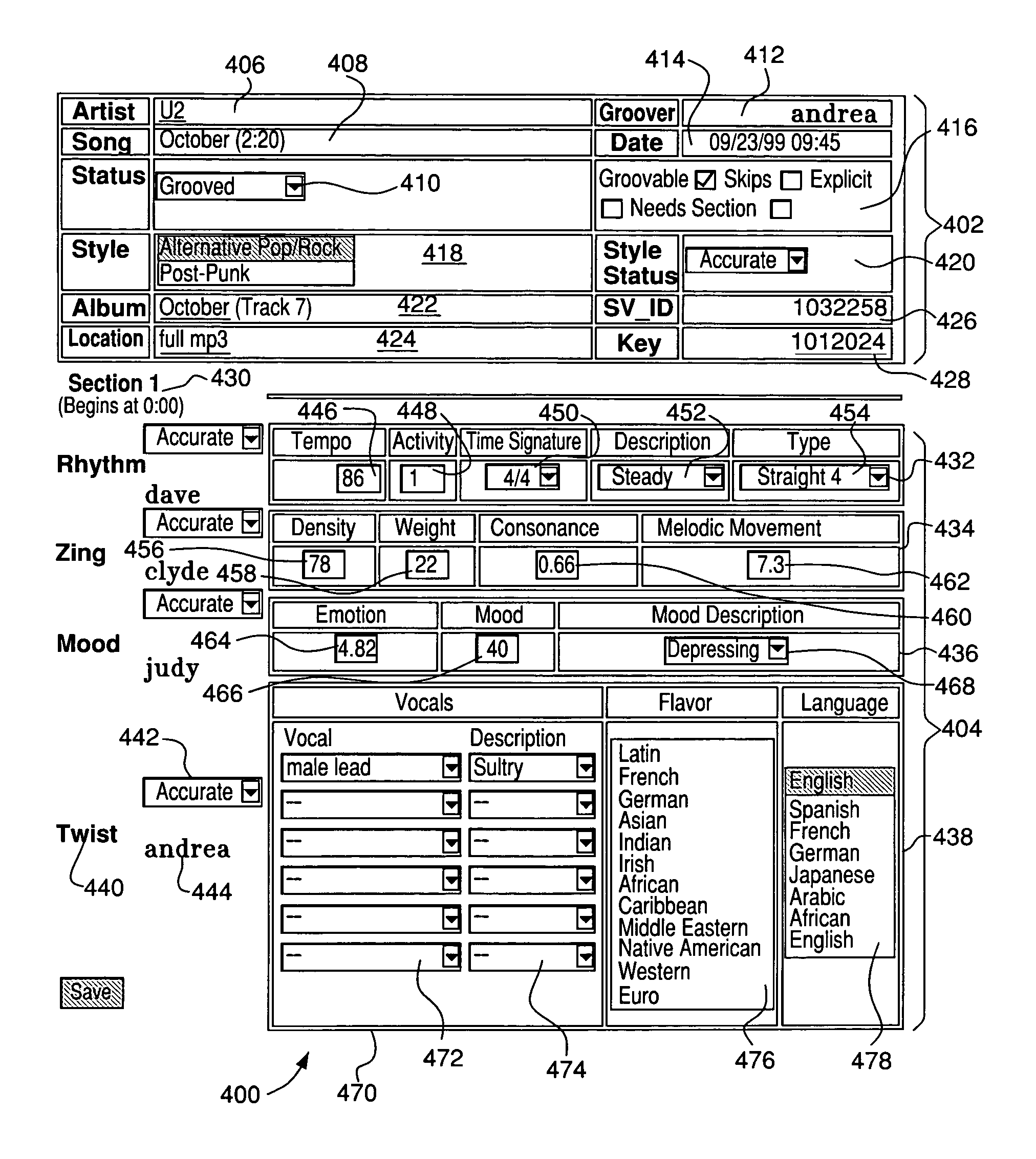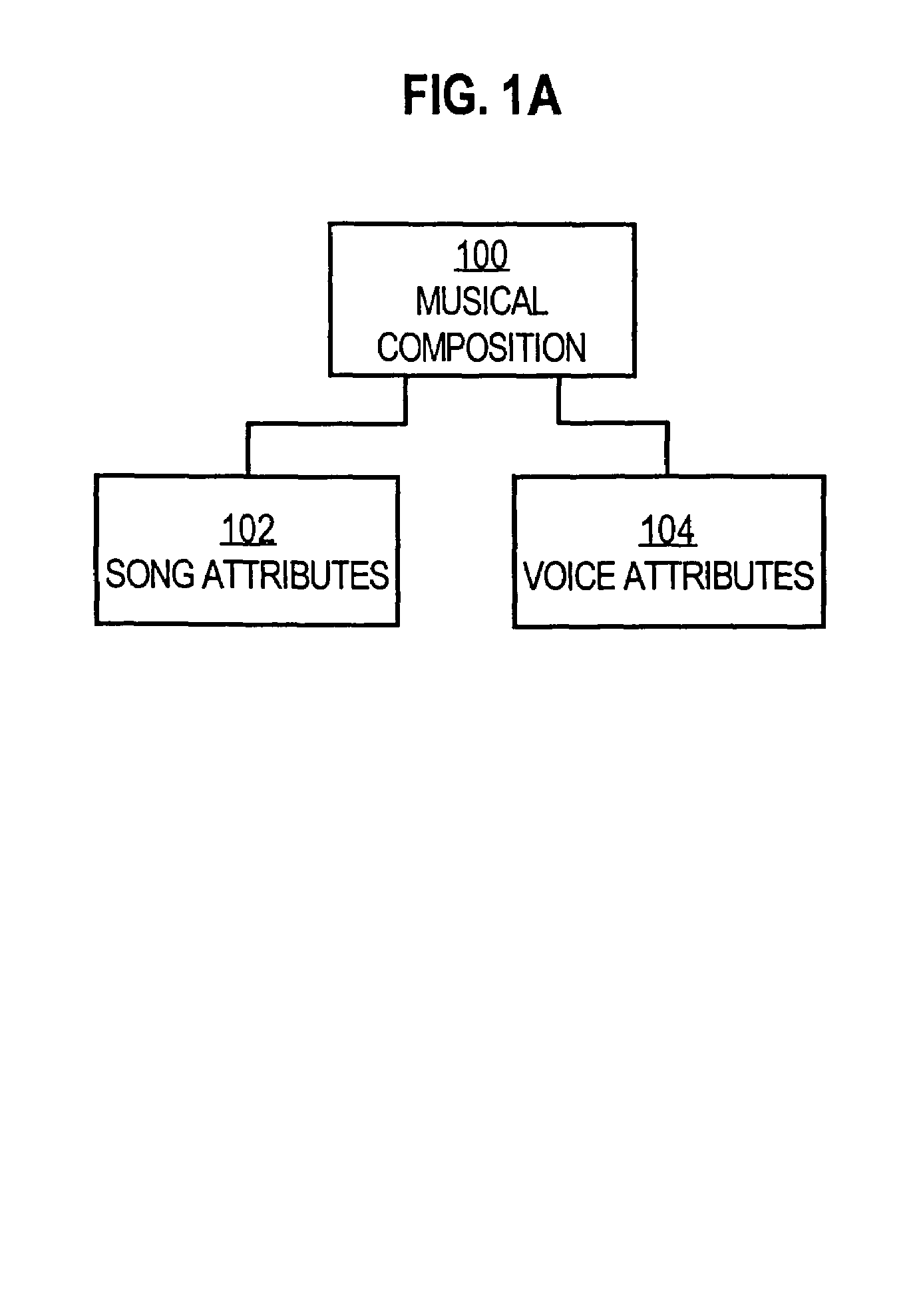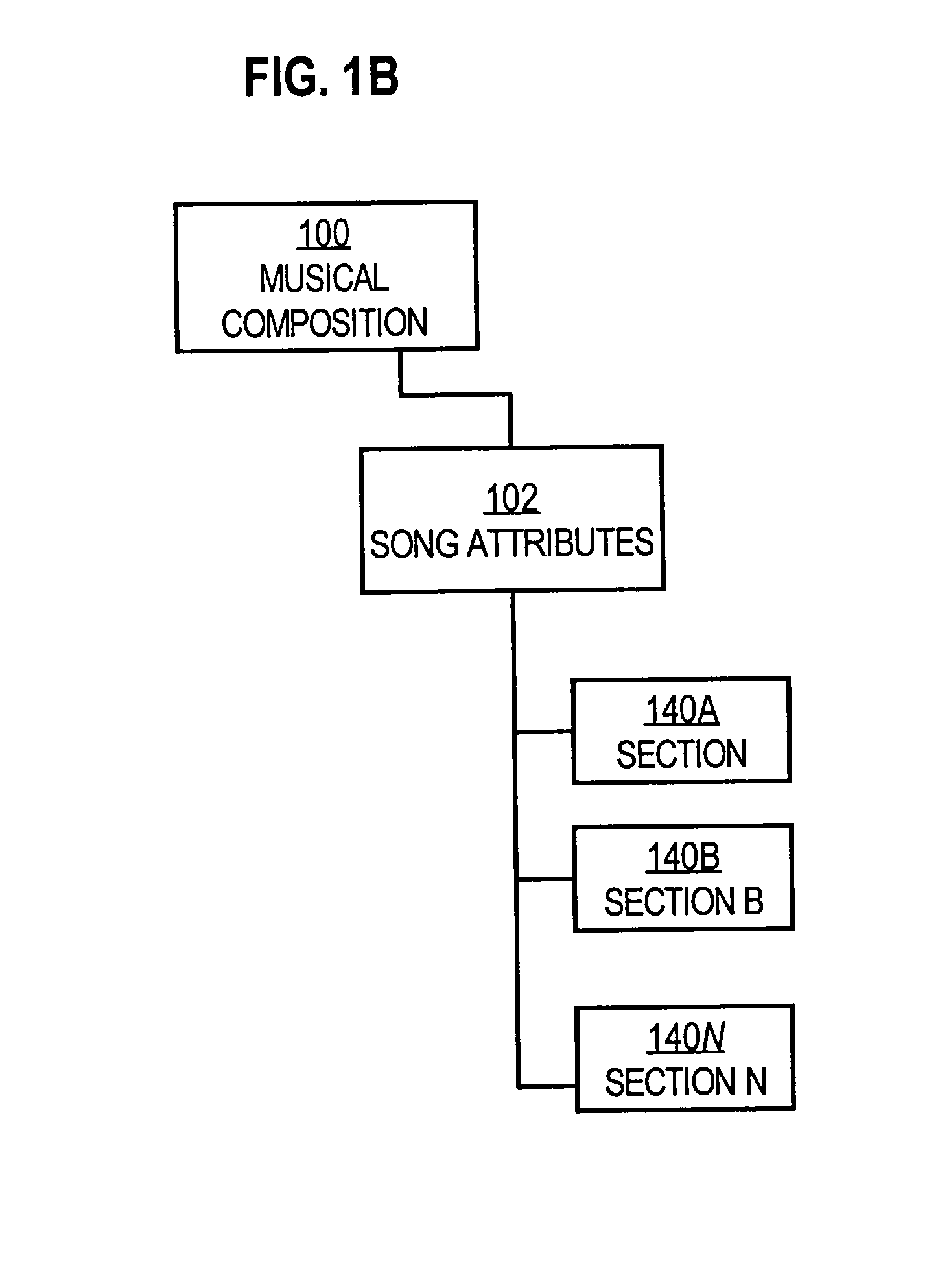Classification of information and use of classifications in searching and retrieval of information
a classification and information technology, applied in the field of classification and information classification in searching and retrieval of information, can solve the problems of complex classification, no consistent, concise, agreed-upon system for such annotations, and difficulty in classification of information that has subjectively perceived attributes or characteristics
- Summary
- Abstract
- Description
- Claims
- Application Information
AI Technical Summary
Benefits of technology
Problems solved by technology
Method used
Image
Examples
Embodiment Construction
[0037]A method and apparatus for classification of information and for using the classifications in search and retrieval of information described. In the following description, for the purposes of explanation, numerous specific details are set forth in order to provide a thorough understanding of the present invention. It will be apparent, however, to one skilled in the art that the present invention may be practiced without these specific details. In other instances, well-known structures and devices are shown in block diagram form in order to avoid unnecessarily obscuring the present invention.
Classifying Information
[0038]One aspect of the invention relates to classifying information. In this context, “classifying” means creating and storing one or more information values that describe attributes of the information. The information values include values that describe subjective attributes of the information in an objective manner in order to facilitate comparison of two different ...
PUM
 Login to View More
Login to View More Abstract
Description
Claims
Application Information
 Login to View More
Login to View More - R&D
- Intellectual Property
- Life Sciences
- Materials
- Tech Scout
- Unparalleled Data Quality
- Higher Quality Content
- 60% Fewer Hallucinations
Browse by: Latest US Patents, China's latest patents, Technical Efficacy Thesaurus, Application Domain, Technology Topic, Popular Technical Reports.
© 2025 PatSnap. All rights reserved.Legal|Privacy policy|Modern Slavery Act Transparency Statement|Sitemap|About US| Contact US: help@patsnap.com



